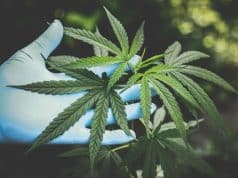Fires, floods, earthquakes: even if your home isn’t directly affected, you may find that things you took for granted don’t work any more. What will you do if you open the faucet only to find that there’s no water? What if there’s no electricity? With natural disasters becoming ever-more common, it’s something we need to think about. Here’s what you’ll need to make it through.
1. A Supply of Drinkable Water
When water supplies are interrupted, your stored water supply could be a life-saver. Water storage containers range from large rainwater tanks and well reservoirs to smaller containers that you’d keep filled with fresh water in case of emergencies. You can determine how long you’d be able to hold out on stored supplies by basing your calculations on the minimum amount you’d need. That’s one gallon of water per person per day for basic survival needs.
2. Stored Non-Perishable Food
As a worst-case scenario, imagine being cut off from the outside world for several days. If your electricity is off, which it’s likely to be in a disaster of that magnitude, the food in your freezers and refrigerators will spoil quite fast. A stock of canned and dehydrated food is worth having in that case – but be sure that you aren’t reliant on an electric can-opener!
3. Lanterns, Torches and Spare Batteries
While having lighting after nightfall isn’t a basic survival need, you’ll certainly be a lot more comfortable if you have some form of backup lighting. Unless you have solar power or a generator – and possibly as a last-ditch if these should fail – having some torches and lanterns and the batteries to power them will come in handy. (1)
4. Cooking Facilities and Fuel
At its most basic, this could be your outdoor barbeque – or you could have a simple gas hob to tide you over. Neither of these will be helpful if you don’t have the necessary fuel, so add this to your checklist. Expand your list of camping meals – they’re likely to become staples if you’re cut off by a natural disaster. Don’t think that cooking facilities aren’t a necessity. If you run out of clean drinking water, you may have to filter and boil water from suspect sources.
5. A Battery-Powered Radio
Being without internet seems unthinkable, but if the infrastructure goes down, you may be thankful to have an old-fashioned radio to help you get information from the outside world. Find out whether the roads are open. Hear whether relief is on the way. Get advice from the authorities on what you should and shouldn’t do. If nothing else, being informed will help you to know how long you’ll be on your own.
6. A Good First Aid Kit
Even when everything is going fine, it’s wise to have a good first aid kit around the house. In disaster conditions, you may have to play doctor for your family. Know your basic first aid and have the necessary equipment at hand. With luck, you won’t have to use it, but it’s best to leave nothing to chance.(2)
Can Your Family Survive on its Own?
During natural disasters, chaos reigns. When relief comes, it usually tries to begin in the hardest-hit areas. That means that if you’re “basically” OK, you might have some time to wait before the authorities can help you or restore your services. How long can you hold out? As a final consideration, what will you do if you have to evacuate? Work with your family to do a little disaster planning of your own. You may never need to implement those plans, but if the worst comes to the worst, you’ll be glad you were prepared.

Speaks from heart, always too passionate and driven by emotions. Spins the words with kindness & sharpness, intriguing your ever-inscrutable minds.




